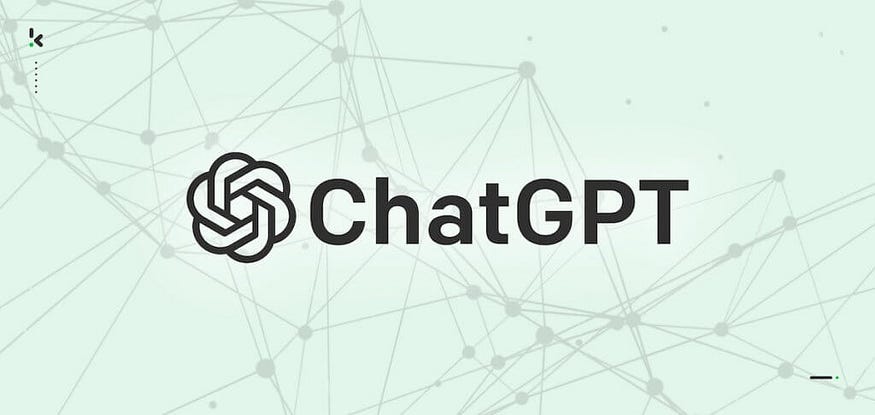
As artificial intelligence continues to evolve, it brings forth tools that can significantly enhance productivity and streamline tasks. ChatGPT is one such tool, particularly for the field of software engineering.
This AI-powered language model can interpret and generate human-like text, making it a potent asset for programmers.
As there is a growing debate on whether ChatGPT will make jobs redundant, and while this may be the case with certain areas in the future, my personal opinion is that it should be regarded as a complementary tool on top of what we are doing.
The programming world entained, even if people admitted or not, a lot of googling ! Stack overflow, W3Schools, and a lot of other websites are go to places for programmers when getting stuck.
ChatGPT comes as another go to place for similar situations but with a more reliable response, and a lot more research then what a person would do in such a short time frame.
So here are my top usages of ChatGPT as a Software Engineer:
- Debugging
Debugging is a critical and time-consuming process in software development. ChatGPT can act as an effective tool to assist with debugging by analyzing error messages and suggesting potential solutions. It can provide contextually appropriate solutions to common errors, helping software engineers rectify issues more efficiently.
We’ve all hit a road block when implementing a new technology or a 3rd party API where the error messages just don’t tell us much! And I am sure we’ve all resorted to googling the error message or part of it, with the hope that someone else out there encountered it and figured it out.
This is one of the most valuable usages of ChatGPT as this will reply with more reliant information and in a much faster timeframe.
2. Code Generation
ChatGPT’s ability to generate text extends to programming languages as well. When given a prompt, it can generate code snippets that correspond to the prompt’s requirements.
For example, you could ask for a Python function to parse CSV files, and GPT-4 would provide a suitable code snippet. While this might not always be perfect, it’s a valuable starting point that can save time and effort.
It can further dive into refactoring and explaining of current code. However, there is an ethical concern people are not referring enough here.
We know that ChatGPT keeps a history of our prompts and that is part of what it makes it so useful. However, that means storing data. And we need to be careful with the data that we are feeding into it, such as company sensitive data, company code that is not open source, customer information or personal data.
Always check their terms and conditions and with your company if there is a safe use of ChatGPT for work purposes.
3. Documentation Assistance
Proper documentation is crucial in software development, but it’s often seen as a tedious task. GPT-3 or GPT-4 can help generate preliminary documentation based on your code, making it easier to keep your documentation up-to-date. It can also help interpret documentation, providing plain-language explanations of technical jargon.
4. Learning New Technologies
The tech field is continually evolving, and staying up-to-date with new languages and technologies is a must for software engineers. ChatGPT can provide tutorials and explanations for new technologies, making it a handy learning tool.
You can ask it to explain a concept or even provide a step-by-step guide for using a new framework or language.
For example, you can ask ChatGPT to explain how to integrate certain frameworks or technologies in your application. Some prompts could look like this:
- I have a Java and Spring Boot application using Maven, can you give me the step by step guide on how to integrate Redis into my application ?
- - I have Java and Spring Boot application using Maven that is currently not connecting to any database, I would like to connect it to a CockroachDB instance. Can you share a step by step guide on how to do this?
5. Automating Repetitive Tasks
Software engineers often encounter repetitive tasks that, while necessary, don’t contribute to their development work’s core value.
ChatGPT can be programmed to automate these tasks, such as sending routine emails, managing calendars, or even maintaining project backlogs. This helps software engineers focus on more complex, valuable tasks.
6. Interview Preparations
The interview preparation process if almost like a study session where you need to remind yourself of the work you have done, familiarise yourself with new technology and also practicing some of the skills you already have.
You can use ChatGPT to explain certain technologies, frameworks, databases or just pure computer science concepts.
You can ask ChatGPT to do a mock interview with you and provide you with interview questions on different topics.
Conclusion
ChatGPT presents a significant opportunity for software engineers to augment their skills, automate repetitive tasks, and enhance productivity. It’s not about replacing human skills, but rather complementing them.
As we continue to understand and explore the capabilities of AI like ChatGPT, we can expect a further evolution of programming practices and software development methodologies.
Remember, it’s crucial to use AI tools responsibly, adhering to ethical guidelines and best practices to ensure beneficial outcomes. Happy coding!
Follow me on Medium for any other Technology, Productivity, Self-Improvement, Biohack-ing and Sports topics.
Comments
Post a Comment